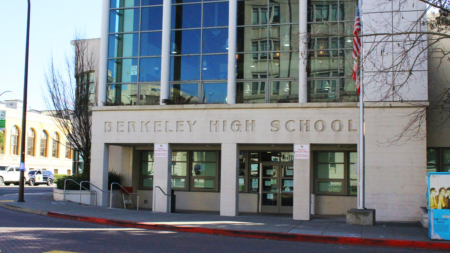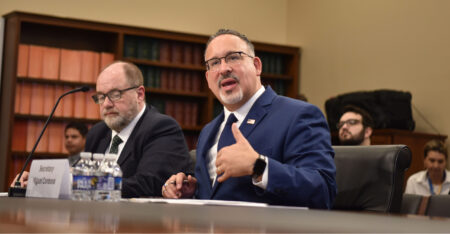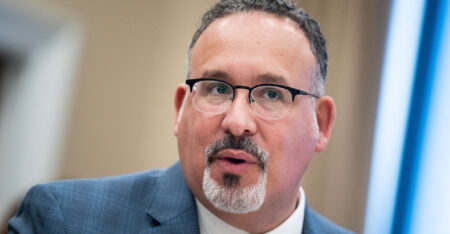National School Choice Week begins on Sunday, and this year, there’s much to celebrate. In 2023, the school choice movement made more progress expanding education options than ever before.
The Year of Education Freedom saw seven states pass new education choice policies and nine states expand existing choice policies. There are now nine states with universal education choice policies that offer education savings accounts or ESA-style options to every K-12 student in the state.
In 2024, that momentum is likely to continue as several states gear up to pass new or expanded education choice policies.
Alabama
The Yellowhammer State has lagged relative to its neighbors in offering education choice. That could change this year as Gov. Kay Ivey, a Republican, has set an ambitious goal for the 2024 legislative session.
“My goal is for Alabama to be the most school choice-friendly state in the nation,” Ivey said on Alabama Public Television’s “Capitol Journal” in July. “I want us to have lots of school choices for our parents to choose from. We are working now, already, now, on a bill, an ESA bill, an education savings account bill, to present to the legislature in the next session, and I’m very optimistic that will pass.”
Florida
In 2023, for the second year in a row, Florida ranked first in the nation on The Heritage Foundation’s Education Freedom Report Card, and ranked second only to Arizona for education choice. Can Florida take the top spot for education choice in 2024?
Last year, Florida Gov. Ron DeSantis signed HB 1, which expanded eligibility for the state’s Family Empowerment Scholarship to all K-12 students. However, as I explained last year, there were some drafting errors that prevented ESA students from being able to choose religiously affiliated providers of virtual learning, and defined “eligible private school” in a way that limited the ability of parents to choose “blended learning” programs that combine or alternate between in-person and virtual instruction, as well as “hybrid homeschooling” that alternates between in-person instruction and home education.
A broad coalition of advocacy organizations, including Heritage Action for America, has asked the legislature to address these issues. Although the amended version of HB 1403 attempts to address the first of these issues, it does not go far enough to alleviate the latter. (Heritage Action for America is the grassroots action arm of The Heritage Foundation, of which The Daily Signal is the news outlet.)
HB 1403 still requires that participating private schools “[m]aintain a physical location in the state at which each student has regular and direct contact with teachers.” The amended version clarifies that the “regular and direct contact with teachers” requirement is satisfied if ESA students physically attend a private school “at least two school days per week,” which would allow hybrid homeschooling. However, the bill would still limit the ability of ESA families to choose full-time virtual instruction or blended learning offered by private schools that have brick-and-mortar locations.
If Florida wants to continue to be a leader in education, it must allow for greater innovation in how education is delivered.
Georgia
After several failed attempts to pass a robust ESA policy, Georgia Gov. Brian Kemp is growing impatient.
“Over the last few years, there has been a great deal of debate around different proposals to expand options for students and families when it comes to finding the education that best fits their individual needs,” Kemp, a Republican, observed in his recent State of the State address. “At the end of the day, our first and foremost consideration should be the future of that student. Our job is not to decide for each family, but to support them in making the best choice for their child.”
Kemp urged the Georgia General Assembly to pass an education choice policy this session, adding: “I believe we have run out of ‘next years.’”
Kentucky
In 2021, Kentucky lawmakers enacted an innovative ESA policy funded via tax credits. Unfortunately, the Kentucky Supreme Court struck down the ESA policy in a flawed ruling that held—contrary to the U.S. Supreme Court and nearly every other state supreme court to address the matter—that funds belonging to private citizens or corporations can become “public funds” even before reaching the public treasury.
Now, state lawmakers are fighting back with a proposed constitutional amendment that would clarify that school choice is constitutional. According to the Courier Journal, the amendment “will have support by legislators in the House and Senate,” including state Sen. Steve West, chairman of the Kentucky Senate’s Education Committee, who told the newspaper that he is “pro-school choice” because it “will enhance education in Kentucky … and it’s not going to destroy public schools.”
If a supermajority of three-fifths of each chamber of the Kentucky General Assembly passes the amendment, it will go to Kentucky voters for final approval.
Louisiana
Among education choice advocates, the Pelican State is widely considered “most likely to succeed” in 2024.
Last year, the Louisiana state Legislature twice passed bills to enact education choice policies, and twice then-Gov. John Bel Edwards, a Democrat, vetoed them. However, there’s a new sheriff in town: Republican Gov. Jeff Landry, who took office Jan. 8, a longtime supporter of education choice whose campaign website stated that if “school cannot adequately educate its students, those students should be given the ability to obtain an education that is worthy of the commitment we have made to them.”
At his inauguration, Landry declared: “Our people seek government that reflects their values. They demand that our children be afforded an education that reflects those wholesome principles, and not an indoctrination behind their mother’s back.”
The surest policy to enable families to choose learning environments that reflect their values and work best for their children is universal education choice.
Mississippi
Although Mississippi was one of the first states to enact an ESA policy nearly a decade ago, eligibility is still limited to students with certain special needs and only a few hundred students are participating.
Gov. Tate Reeves would like to change that.
“There’s been a huge push among Republicans around the country to give parents more options in their kids’ education,” Reeves said recently. “We have seen tremendous progress when it comes to educational achievement levels in our state, and the obvious next step is more school choice. And I hope the legislature acts on that, and I believe there’s a lot of people in the legislature who want to do that.”
Last month, a poll by Arc Insights found that 79% of Mississippi voters support school choice.
Tennessee
Even before this year’s legislative session began, Tennessee Gov. Bill Lee, a Republican, had made expanding education freedom and choice a top priority.
“A high-quality education has the power to change the trajectory of a child’s life, and there’s no question that now is the time to make school choice a reality for every Tennessee family,” Lee said at an event announcing the proposal last November.
“Tennessee’s Education Freedom Scholarships will empower parents with the freedom to choose the right education for their child, while also giving them a say in how their taxpayer dollars are invested. In the coming months, I look forward to working with Tennessee families and members of the General Assembly to accomplish this historic legislative initiative and establish Tennessee as a leader in providing choice for families while also striving toward the best public school system in the country.”
If enacted, Lee’s proposal would provide 20,000 scholarships during the 2024-25 school year, with half earmarked for low-income students and half available to all students.
In addition to the states profiled above, school choice advocates, such as Corey DeAngelis of the American Federation for Children, expect to see progress in several other states, including Idaho, Missouri, Nebraska, North Dakota, Texas, and Wyoming.
Have an opinion about this article? To sound off, please email letters@DailySignal.com, and we’ll consider publishing your edited remarks in our regular “We Hear You” feature. Remember to include the URL or headline of the article plus your name and town and/or state.
Read the full article here













